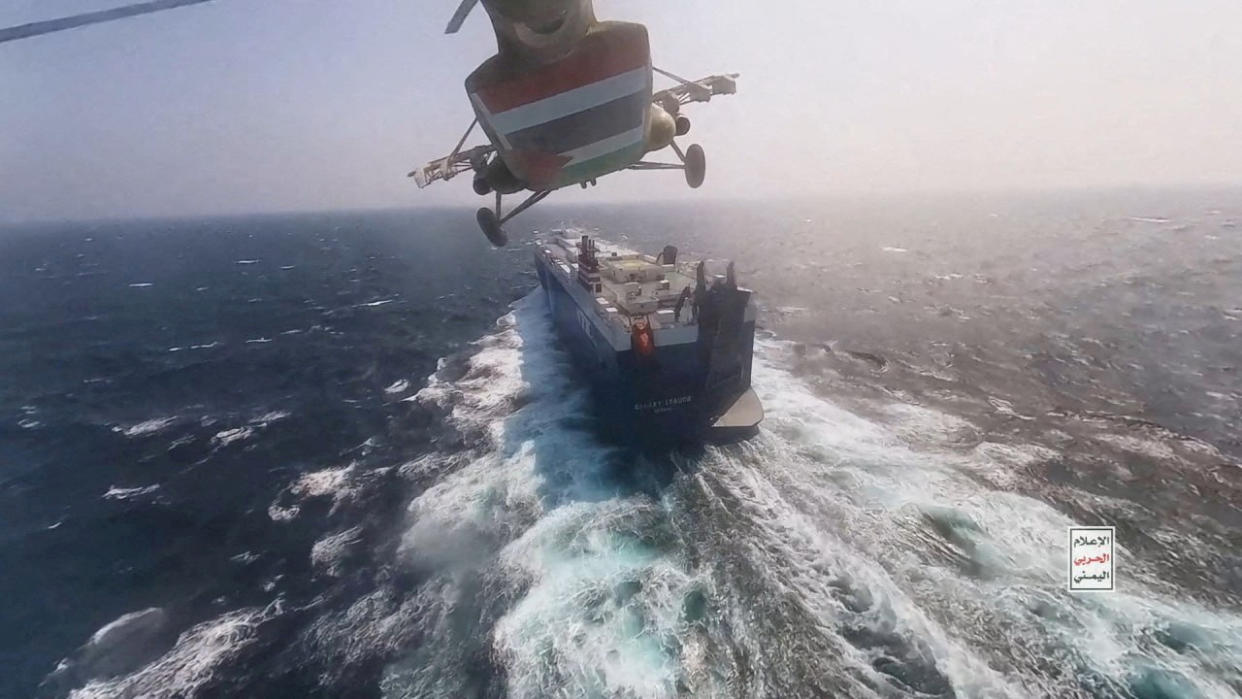Red Sea chaos: Should the U.S. go on offense to stop Houthi rocket attacks?

While the world’s attention has been focused on Israel’s war against Hamas in Gaza, a smaller conflict has been slowly escalating elsewhere in the Middle East that experts fear could derail the global economy or even escalate into a major war across the entire region.
The situation involves the Houthis, an Islamic militant group that controls parts of Yemen. In mid-November, the Houthis started mounting attacks on container ships traveling through the southern tip of the Red Sea — a critical trade route that connects Asia to Europe. The group has launched more than 100 missiles and drones at ships transiting through narrow corridors near its territory, according to U.S. military officials. The Houthis, who are backed by Iran, say the attacks are means of supporting Hamas militants in Palestine in their fight against Israel.
American warships in the Red Sea have shot down the Houthis’ weapons, preventing them from reaching their targets. But some of the world’s biggest shipping companies are still steering clear of the area, instead sending their vessels on the much longer trek around the southern tip of Africa.
So far, the U.S. has committed only to playing defense by continuing to intercept the barrages with the support from allied navies. But American military officials are reportedly considering a plan to go on the offensive by bombing Houthi missile sites inside Yemen should the attacks continue or escalate. There is precedent for such a move. The U.S. took out three Houthi targets during a previous standoff in 2016 and has launched attacks on Iran's proxies elsewhere in the region several times in recent years, including strikes on militia groups in Iraq earlier this week.

Why there’s debate
The U.S. certainly has the firepower to devastate the Houthi missile launch sites, but there’s intense debate over how to weigh the potential consequences of direct strikes against the harms of allowing the group to keep creating chaos in the Red Sea.
An emerging view, particularly among conservative foreign policy hawks, is that the U.S. has to take out Houthi missile positions rather than sit back and allow a relatively small rebel group to threaten the stability of international trade. They argue that the current passive approach not only harms the global economy, but also gives Iran the green light to continue attacking American interests in the region through their proxy forces with impunity.
Those who take a more cautious view say even limited strikes from the U.S. would risk upsetting a delicate balance that has, so far, prevented the conflict in Gaza from spilling into a devastating regional war. They argue that attacking the Houthis would likely only lead to more aggressive actions by Iran-backed groups throughout the Middle East, which could easily set off a cycle of escalation that leads to a direct war between the U.S. and Iran. At the same time, some of Israel’s strongest critics argue that the best way to stop Houthi rockets from threatening cargo ships is to end the assault on Gaza that has inspired the attacks in the first place.


